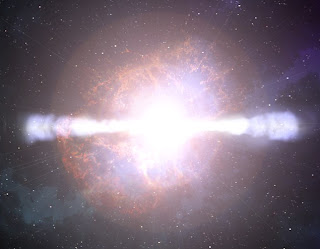When I heard that English comedian John Oliver was set to fill in for John Stewart on The Daily Show, I was pleasantly surprised. Oliver’s wit and emphatic charm is always a welcomed sight when he has a cameo or special report on the show. As I watched his debut as replacement host on Monday night, I started to think about how much reverence I have for so many things British.
Like most of my passions, it was probably something that was influenced by my dad. It may have been the excitement of James Bond movies with 007’s charm and sophistication which made me try on my best British accent and recite "Bond, James Bond." But when I really think back, I don't think I would have seen my first Bond movie until I was approaching my tweens, so what more likely sparked my fascination with the culture and music of England was Elton John.
When my family travelled during my formative years, my dad would always pack a good collection of music to play in the van. Conscious of the time we were traveling for, he would pack enough variety as not to have to repeat anything too much. This was before the advent of playlists and burning mixed CDs of course. Anyway, enter Elton John into the mix. Songs like Little Jeanie, I'm Still Standing and Nikita were all released around the time I achieved an apt level of consciousness that could be affected by music on a level deeper than just catchy beats or melodies. Although Elton may not have written the lyrics to his songs, his was probably the first music I could understand that displayed the power of song and depth of someone's talent. I would spend hours listening to his music and learning about that magnificent artist with a flair for the dramatic. To this day, I revel in the moments when I hear Elton on the radio or I revisit an older album.
Then came David Bowie. I recently wrote about Bowie, so I won't shed too many lines about him now. What I think Elton and Bowie have in common is a personality and image that yells glamour, originality, and confidence. The kind of people who would walk down the street and peculate the attention of everyone around them, and maybe even each other.

Then came an adolescence of Radiohead, Muse, The Smiths, Blur, Sleeper, Oasis, Cold Play, Stanley Kubrick, Monty Python, Mr. Bean and a boot load of techno and house music (see what I did there? boot.) Like everyone else on the planet whose undeveloped frontal cortex seems to leave a longing gap in his or her identity, I found myself somehow relating to this hodgepodge of British miss mosh. To me, the comparison of original, honest and seemingly genuine content that was coming to my ears and eyes from across the pond made the majority of North American offerings seem like a wavering relative who was two steps behind. I should admit that I have an affinity for rarities and a band like Radiohead satisfied my desire to collect bootlegs and limited foreign releases. And speaking of Radiohead, I fondly remember an interview with lead singer Thom Yorke around the time Ok Computer was touring. He talked about how strange it was touring America and the blatant obsession people have with celebrity. It may seem silly, but that glimpse into an attitude that places little value on fame still causes me to snub the thought of idolizing most people. Of course, that isn't to say I don't have my idols.

My favourite author is the late, great, Christopher Hitchens. His incredible books, essays and vocabulary aside, Hitchens was also one of the most well spoken advocates for humanism and could reduce the most educated and fearless opponents to rubble in debate. His ideals were often polarizing and he left nothing to interpretation on where he stood or felt. In my eyes, he was a champion of the good fight and his boundless talent causes me to want to learn and understand the depths of culture, religion and the human condition so that I too, may one day, be able to rise to the occasion.

My partiality for the best of Britain continues with the brash reality show Big Brother UK, The Apprentice UK and the BBC's Top Gear, starring Jeremy Clarkson, Richard Hammond and James May. Clarkson's brutish character, Hammond's likability and the subtle genius of May combine to deliver a show that keeps you entertained, engaged and even leaves you learning a few things. James May also hosts Man Lab, a show that delivers much more than it's name suggests. The common thread that gently loops through all of these shows, some of them better than others, is a spirit of social candour, humor and intelligence that seems further evolved than what we see in North America. When you really look at how the casts and hosts interact with each other and the audience compared to similar shows here, it's hard not to think they are naturally wiser and wittier than us.
Approaching a blog length that I suspect is starting to boarder on bloody long, I will take a break from writing and organize my thoughts on my favorite Brit of late, Mr. Stephen Fry.






